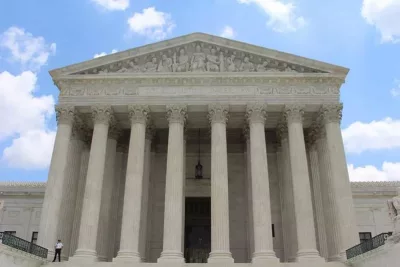
Defamation of Character in Texas: Legal Insights & Practical Guidance
This page has been peer-reviewed, fact-checked, and edited by qualified attorneys to ensure substantive accuracy and coverage.
If you are the victim of defamation of character in Texas, it can be difficult to know how to proceed and what your available remedies are.
Texas law defines defamation of character differently depending on whether it is spoken or written. Spoken defamation, or slander, is a false statement about you that is spoken to a third person and is not protected by any privilege. Slander is actionable under common law in Texas. Written defamation, or libel, is a false written statement that exposes you to “public hatred, contempt or ridicule, or financial injury.” Libel is actionable by statute in Texas.
At Minc Law, we have represented defamation victims across the United States and around the world. Our experience representing over 2,500 clients in more than 26 states and five countries has made us well-versed in the nuances of Texas defamation law. We have helped clients like you confidently fight back against internet defamation to protect and restore their reputations.
This in-depth guide to Texas defamation law explains the different forms of defamation in Texas, common defenses to defamation, and what to expect when filing a defamation lawsuit.
What Constitutes Defamation of Character in Texas?
Defamation is a false statement of fact, communicated or published to a third party, that damages the subject’s reputation. Also known as “defamation of character,” this umbrella term for false statements of fact encompasses two different types of defamation: slander and libel.
While slander is spoken defamation, libel is written. An easy way to remember the difference is that “slander” and “spoken” both begin with an “S.”
How Does Texas Define Defamation of Character?
Texas Civil Practice and Remedies Code § 73.001 is the statutory basis for libel actions in Texas. Section 73.001 defines libel as written defamation that injures a dead or living person’s reputation. The defamatory statement “thereby expose[s] the person to public hatred, contempt or ridicule, or financial injury.”
Slander, a common-law cause of action, is defined as an oral statement published to a third person that is:
- Defamatory,
- False,
- Refers to an ascertainable person, and
- Is not protected by any privilege. Reeves v. Western Co. of North America, 867 SW 2d 385 – Tex: Court of Appeals, 4th Dist. 1993. See also Ramos v. Henry C. Beck Co., 711 SW 2d 331 – Tex: Court of Appeals, 5th Dist. 1986.
Libel Per Se & Slander Per Se
To be classified as ‘defamation per se’, a statement’s defamatory nature must be apparent on its face—without reference to outside facts or “innuendo.” KTRK Television, Inc. v. Robinson, 409 SW 3d 682 – Tex: Court of Appeals 2013. See also Moore v. Waldrop, 166 SW 3d 380 – Tex: Court of Appeals, 10th Dist. 2005.
For example, a statement may be defamatory per se if it:
- Accuses you of committing a crime,
- Injures your office, profession, or occupation, or
- Accuses you of sexual misconduct or having a loathsome disease.
For a statement affecting your business to qualify as libel or slander per se, it must actually be about your business, not just potentially harmful to it.
Traditionally in cases of libel per se, damages are presumed (meaning the plaintiff does not need to prove they suffered harm). However, the Texas Supreme Court has held that nothing beyond nominal damages may be presumed, even in cases of defamation per se where clear and convincing evidence proves actual malice.
Does Texas Have a Criminal Defamation Law?
Libel is generally a civil matter. However, there are several states that have criminal defamation laws on their books (which are rarely ever enforced). Texas is one of those states. However, its criminal defamation law is very narrow and limited in scope, only applying to banks.
Under Section 119.202 of the Texas Financial Code, criminal slander or libel may occur when a person:
- Knowingly makes, utters, circulates, or transmits to another person a statement that is untrue and derogatory to the financial condition of a savings bank; or
- With intent to injure a savings bank counsels, aids, procures, or induces another person to originate, make, utter, transmit, or circulate such a statement.
Does Texas Have Any Food Disparagement Laws?
Commonly referred to as ‘veggie libel laws’ or ‘food libel laws’, food disparagement laws enable food manufacturers and processors to sue individuals who publish false comments about their food products. As of date of publication, thirteen states have veggie libel laws, including Texas.
Tex. Civ. Prac. & Rem. Code Ann. 96.001 establishes that food manufacturers or processors may have a valid cause of action if an (a) individual publishes information relating to any perishable food product to the public, (b) that they know is false, and (c) that information conveys or implies that the product is not safe for consumption.
When determining the falsity of the information, courts will consider if the information was “based on reasonable and reliable scientific inquiry, facts, or data.”
Elements of Defamation of Character to Prove in Texas
In this section, we explain how both public and private figures can prove defamation of character in Texas. We then explore the difficulty of succeeding in bringing a defamation claim in the state.
Who Has the Burden of Proof in a Defamation Lawsuit?
To succeed in a defamation lawsuit, the plaintiff is responsible for proving that the statement in question rises to the level of defamation.
For instance, by definition, a statement is not defamatory if it is true. To succeed in bringing a defamation claim, the plaintiff must prove that the statements were false.
What Are the Elements of a Defamation Claim in Texas?
In Texas courts, the plaintiff must prove the following four elements for a statement to be considered defamatory:
- A false statement of fact was published to a third party,
- The statement was about the plaintiff,
- The defendant made the statement with the requisite degree of fault, and
- The statement caused damages (unless it is defamatory per se).
Public vs. Private Figures
A plaintiff’s identity as a public or private figure determines the standard of negligence required to be proven in a defamation lawsuit. In the context of defamation cases, private and public figures have the following distinctions:
- A public figure has assumed a prominent role in society or been thrust into the spotlight, such as a celebrity, government official, or individual at the center of a controversy.
- A private figure is any individual who is not in the public spotlight or cannot be defined as a public figure.
If the plaintiff is a private figure, they must prove that the false statement(s) of fact published about them was done so with at least a negligent level of intent.
If the plaintiff is a public figure, on the other hand, the burden of proof is higher. They must prove that the defendant acted with actual malice or reckless disregard in making the harmful and untrue statement.
It is often easier to determine whether an individual is a public or private figure; for businesses, the distinction may be muddier. The Fifth Circuit Court, applying Texas law, ruled that a corporation does not become a public figure simply due to business advertising. A pre-existing controversy must exist and the corporation must have “thrust itself” into the controversy.
Texas courts determine whether a corporate plaintiff is a public figure by examining:
- The corporation’s notoriety to the average individual in the area,
- The nature of the corporation’s business, and
- The frequency and intensity of media scrutiny that the corporation normally receives.
While the negligence standard is required for defamation cases involving private figures, a plaintiff may only recover actual damages. To recover exemplary damages, the private individual or business may still need to show that the defendant made the statement with actual malice.
Issues of Public & Private Concern
Just as defamation law in Texas (and the U.S.) discerns between private and public figures, it also differentiates between matters of private and public concern.
Due to our country’s interest in maintaining an informed society and protecting free speech, statements of public concern are generally protected from liability for defamation. So when the statement in question regards a matter of public concern, it can be more difficult to succeed in bringing a defamation claim.
In Texas, courts require plaintiffs to prove that the speaker acted with actual malice when speaking about a matter of public concern.
Texas courts do not consider a public controversy to be an issue of public concern. To be considered a matter of public interest, it must be a real dispute with outcomes affecting the general public in a substantial way.
The Texas Supreme Court has also stated that while a publication’s general subject matter is of public concern, some details may not be. But if those details and the general subject matter are logically related, they may be included as an issue of public concern.
How Hard is It to Win a Defamation Lawsuit in Texas?
Succeeding in a defamation case in any state is difficult. However, the answer to this question depends on how the plaintiff defines “winning.” At Minc Law, for our typical defamation client, “winning” a defamation case typically looks like:
- Taking down defamatory content from the internet;
- Identifying the anonymous poster;
- Obtaining a court order to remove content or some other relief that stops the defamatory behavior; or
- Winning monetary compensation.
While challenging, we can generally achieve successful outcomes like the ones described above in roughly 90% of our cases. However, every situation and client is unique. Individual results may vary and past performances do not guarantee future success or results.
If you aim to receive considerable monetary compensation, success will be much more difficult. It will require a larger budget and much more time to set up a case, prove defamation damages, and rebut the defendant’s arguments.
We have extensive experience removing defamatory content and holding perpetrators accountable.Damaged reputation?
Filing a Defamation of Character Lawsuit in Texas
Defamation lawsuits may be costly in both time and resources, which is why they should not be taken lightly. In cases where you have suffered extreme reputational and financial loss, a lawsuit may be the only way to stop the perpetrator’s behavior and mitigate the damage.
This section breaks down the major considerations to keep in mind when preparing to file a defamation lawsuit in Texas.
What Type of Attorney Do You Need to File a Defamation Suit in Texas?
Regardless of where you are located, defamation law is a highly nuanced and rapidly evolving area of law. Each defamation case is unique—and there is no one-size-fits-all solution. Accordingly, it is best to have the help of an experienced internet defamation attorney to file an online defamation lawsuit.
There are many legal specializations, such as criminal defense or wills. You would not want the lawyer who wrote your will to represent you in a criminal trial—and the same can be said for defamation law. If you are the victim of defamation, you should hire a legal team that has proven experience handling defamation cases. They should also be familiar with related areas of the law, including:
- Online harassment,
- Stalking,
- Copyright, and
- Extortion.
Experienced online defamation attorneys can navigate these tricky intersections and tailor legal strategies to effectively resolve your issue.
Internet defamation cases in particular require a tech-savvy attorney. Experienced online defamation attorneys understand the latest technological and investigational tools, web monitoring services, and the nuances of social media reporting procedures.
It is also best to find an attorney who understands your goals. For example:
- Is your only goal to remove the defamatory content?
- Are you hoping for monetary compensation equal to the harm you suffered?
- Do you hope to hold the perpetrator accountable for their actions?
- Are you open to alternatives to litigation?
- Would it be better to use online reputation management (ORM) techniques to suppress the content?
Your objectives and unique situation shape your overall strategy and legal options. It is essential to be on the same page with the attorney you choose to represent you.
How Much Does It Cost to File a Defamation Lawsuit in Texas?
Filing fees for defamation claims in Texas are relatively low. It costs $21 to file a civil case in Texas, and an additional $21 to file for each additional action (such as an appeal or motion for a new trial).
The bulk of the costs to file a defamation lawsuit is the cost of representation. Attorneys and legal teams typically charge based on the complexity of the case and the length of time it takes to resolve the matter. The more complex your case—for example, if there is a lengthy discovery process or it becomes necessary to appeal a decision—the higher the cost of representation
At Minc Law, litigation matters start with a retainer agreement for $8,500, which is billed against on an hourly basis. Standard online defamation cases generally average a total of $15,000, with monthly costs ranging from $1,500 to $3,000 per month.
However, contested cases may typically run from $4,000 to $6,000 per month for the length of the case. Should your case proceed all the way to trial, total trial costs alone can reach roughly $30,000 to $60,000 due to the nature of the work and personnel involved.
To learn more about how much Minc Law typically charges for a defamation lawsuit, as well as how the stages of a defamation case can affect price, please see our article: “How Much Does a Defamation Lawsuit Cost?”
What is the Statute of Limitations For Filing Your Defamation Claim in Texas?
The statute of limitations is the amount of time a plaintiff has to bring a claim after an offense has been committed. In Texas, the statute of limitations for libel or slander is one year from when the defamatory statement was published. In Cain v. Hearst Corp, the court held that the one-year libel limitations period applies to all torts based on the same facts as a libel claim.
The statute of limitations begins running on the date the individual becomes aware of the communication or publication—not on the date of the defamatory publication. In non-media libel cases, the statute of limitations does not begin to run until the injured party learns (or a reasonable person should have learned) of the offense.
Each allegedly defamatory statement is a separate transaction with an independent injury. A plaintiff must file suit within a year of every challenged statement.
Does Texas Follow the Single Publication Rule?
The single publication rule states that when determining the statute of limitations, only the first publication will give rise to a cause of action. If a person (or publication) published the same libelous message about you several times, the limitations period does not reset each time they republish the statement. However, substantial changes to the defamatory statement or publication may give rise to a new libel action.
In Texas, you must file your defamation lawsuit within one year of the first publication.
Texas generally follows the single publication rule for online speech (Glassdoor, Inc. v. Andra Group, LP, 575 SW 3d 523 – Tex: Supreme Court 2019) and mass-media publishers (Holloway v. Butler, 662 SW 2d 688 – Tex: Court of Appeals 1983). However, the court can review the number of publications (or copies sold) when considering the amount of damages to award.
The single publication rule is not typically applicable to non-media reports repeatedly communicated to limited audiences. One example might be a credit report or other information from a specialized data bank.
What Are Your Options if the Statute of Limitations Has Run Out For a Defamation of Character Claim in Texas?
If the statute of limitations has run for the defamation of character claim in Texas, you cannot bring a defamation of character claim against the publisher of the content. It is, therefore, extremely important to act swiftly and keep the statute of limitations in mind when considering filing a defamation lawsuit.
Where Should You File Your Defamation Lawsuit in Texas?
When bringing a defamation claim in the state of Texas, you must file the lawsuit in a District Court. The specific venue will depend generally on the location where the defendant is located, the location where the defamation was published or read, or where the Plaintiff has experienced harm. While defamation of character is considered a civil law matter under Tex. Gov’t Code §§ 26.043 and 27.031(b), defamation cannot be heard in any county court that covers constitutional or statutory matters.
What Legal Action Can You Take in Texas Against Someone Filing False Police Reports?
In Texas, making a false police report is often classified as a different offense or claim than defamation. It is defined as instigating prosecution with evidence the person knows to be false. 20 Dorsaneo, Texas Litigation Guide § 332.10 (2023). See also Marin Real Estate Partners, LP v. Vogt, 373 SW 3d 57 – Tex: Court of Appeals, 4th Dist. 2011. If a fabricated claim to law enforcement causes you to be prosecuted unfairly, you may be able to sue them for filing a false police report.
However, simply knowing someone gave false testimony may not be enough to bring a successful claim against them. A person is not liable for damages for giving testimony as a witness for the prosecution or because their name was on the indictment. If there is no evidence that that person instigated a malicious prosecution, they are likely not liable for filing a false police report.
Common Defamation Defenses a Defendant May Rely on in Texas
A defendant may rely on one or more of countless defenses to avoid liability in a defamation suit. Before filing a claim, it is important to understand the core defenses that may affect the strength of your lawsuit.
The most common defenses to defamation in Texas include:
- Opinion,
- Truth,
- Privilege,
- Anti-SLAPP laws, and
- Retraction or mitigation.
Defense of Opinion in Texas
By definition, defamation includes a false statement of fact. Therefore, a statement of opinion cannot be defamatory, as it can be neither proven nor disproven.
In Carr v. Brasher, the Texas Supreme Court found that “[a]ll assertions of opinion are protected by the first amendment to the United States Constitution and article I, section 8 of the Texas Constitution.”
Truth as a Defense to Defamation in Texas
Similar to opinion, truth is another definitional defense against defamation. A defamatory statement contains a false assertion of fact—so if the plaintiff cannot prove the statement was factually untrue, the defendant may not be held liable.
Truth is an absolute privilege in Texas, according to Texas Civil Practice and Remedies Code § 73.005. While technically truth is not strictly a defense—since the burden of proving falsity rests on the plaintiff—it is common for Texas courts to refer to truth as a defense to defamation.
What is Substantial Truth in Texas?
In Texas, it is not enough for the plaintiff to prove that the allegedly defamatory statement is literally false. They must show that the statement(s) is substantially false—in other words, “more damaging to [the plaintiff’s] reputation, in the mind of the average listener, than a truthful statement would have been.”
If the underlying “gist” of the statement is true, courts may disregard smaller details in the statement that may not be factually correct. However, this can also mean that if a statement is literally true but creates a “false gist” based on omissions or juxtaposition, the court may consider it to be substantially false.
Privilege Defense in Texas
The defense of privilege refers to a person’s legal right to publish or communicate a statement to another person or group. When a statement is considered privileged, the defendant cannot be held liable for defamation. Texas recognizes the following types of privilege:
- Absolute privilege,
- Conditional privilege,
- Fair report privilege, and
- Fair comment privilege.
Absolute Privilege
Absolute privilege completely protects a speaker or publisher of a false assertion of fact from liability and is granted to individuals whose position or status requires them to do their duty without fear of civil action. Texas common law recognizes absolute privilege for:
- Statements made in the course of judicial proceedings (Landry’s, Inc. v. ANIMAL LEGAL DEFENSE, 631 SW 3d 40 – Tex: Supreme Court 2021);
- Statements made in the course of legislative proceedings (Aransas Harbor Terminal Railway Co. v. Taber, 235 S.W. 841 (Tex. Comm’n App. 1921);
- Statements made in the administrative functions of government (CEDA CORP. v. City of Houston, 817 SW 2d 846 – Tex: Court of Appeals 1991);
- An attorney’s statement in the course of case preparation (Russell v. Clark, 620 SW 2d 865 – Tex: Court of Civil Appeals, 5th Dist. 1981);
- A psychiatrist’s report to a judge in mental health proceedings (James v. Brown, 637 SW 2d 914 – Tex: Supreme Court 1982);
- Statements made by an employer’s representative to a Texas employment commission (Hardwick v. Houston Lighting & Power Co., 881 SW 2d 195 – Tex: Court of Appeals, 13th Dist. 1994);
- Comments made by high-ranking state officials in the performance of their duties (Salazar v. Morales, 900 SW 2d 929 – Tex: Court of Appeals, 3rd Dist. 1995); and
- Statements made during quasi-judicial proceedings (Parker v. Holbrook, 647 SW 2d 692 – Tex: Court of Appeals 1982).
Conditional Privilege
Conditional, or qualified, privilege applies to particular situations that require an individual to be able to give information freely, even if it could be untrue and defamatory. Texas common law recognizes conditional privilege for:
- Good-faith statements made in connection with church affairs (Kelly v. Diocese of Corpus Christi, 832 SW 2d 88 – Tex: Court of Appeals, 13th Dist. 1992);
- Good-faith statements on a subject of interest to the speaker, that the speaker has a duty to communicate to another person with a corresponding interest or duty (Calhoun v. Chase Manhattan Bank (USA), NA, 911 SW 2d 403 – Tex: Court of Appeals 1995);
- Statements made to law enforcement officers in the course of a relevant investigation (Zarate v. Cortinas, 553 SW 2d 652 – Tex: Court of Civil Appeals, 13th Dist. 1977);
- Evaluation of a physician’s qualifications by a hospital administrator in response to queries by other hospitals where they had applied for staff privileges (Gillum v. Republic Health Corp., 778 SW 2d 558 – Tex: Court of Appeals, 5th Dist. 1989);
- Accusations against an employee by an employer to a third party with a common interest (Wilson v. UT Health Center, 973 F. 2d 1263 – Court of Appeals, 5th Circuit 1992); and
- Communications to appropriate third parties in the course of investigations into employee wrongdoing (Randall’s Food Markets, Inc. v. Johnson, 891 SW 2d 640 – Tex: Supreme Court 1995).
Fair Report Privilege
Fair report privilege enables the news media to report statements made during official proceedings or published in official documents. As long as the reporting is fair and accurate, publications are generally protected from being sued for libel.
Section 73.002 of the Texas Civil Practice and Remedies Code privileges the publication of “fair, true, and impartial” accounts from the following types of proceedings:
- Judicial proceedings;
- Official proceedings to administer the law;
- Executive or legislative proceedings;
- Proceedings before educational or charitable institutions supported with public funds;
- Proceedings of city, town, or county governing bodies;
- Public school board meetings; and
- Public meetings dealing with a matter of public purpose.
Fair report privilege no longer applies if the statement was republished with “actual malice after it had ceased to be of public concern.”
Fair Comment Privilege
Fair comment privilege allows the general public and the media to publish opinions (or make reasonable inferences) about public figures without fear of being sued for defamation. However, this privilege does not extend to false statements of fact. As long as the statement about the public figure is an opinion, fair comment privilege may be a defense against defamation.
Anti-Slapp Laws in Texas
SLAPP is an acronym for “Strategic Lawsuits Against Public Participation.” Anti-SLAPP laws were enacted to protect individuals against being intimidated into abandoning the exercise of their constitutionally protected rights (such as freedom of speech).
Most states have some form of anti-SLAPP laws to help courts weed out meritless claims. In Texas, the Texas Citizens Participation Act (TCPA) protects individuals from meritless lawsuits intended to suppress their right to free speech. The statute’s goal is to “encourage and safeguard the constitutional rights of persons to petition, speak freely, associate freely, and otherwise participate in government to the maximum extent permitted by law and, at the same time, protect the rights of a person to file meritorious lawsuits for demonstrable injury.”
This statute requires that a motion to dismiss a meritless claim must be filed no later than 60 days from the service of the action.
Retraction or Mitigation
Texas’s Defamation Mitigation Act (DMA) requires plaintiffs to request the defendant to retract, clarify, or correct the allegedly defamatory statement before filing a defamation suit.
If the plaintiff has not requested a retraction within 90 days of learning about the defamatory publication, they may not recover exemplary damages. Damages also may not be recovered if the publisher makes a correction, or if they ask for proof of the statement’s falsity and the plaintiff does not provide that evidence.
If the defendant made the publication with actual malice, however, retraction does not exempt them from liability for defamation.
What Damages Are Available in Defamation Claims in Texas?
In a civil case such as a defamation lawsuit, “damages” is the umbrella term for monetary compensation awarded to the plaintiff for their harm suffered as a result of the unlawful action. In Texas, damages take one of three forms:
- Actual damages,
- Punitive damages, and
- Presumed damages.
Actual Damages in Texas
Actual damages—which are broken down into special and general damages—are awarded to make up for the actual harm suffered by the plaintiff. The damages may be reimbursements for financial losses, or they may compensate plaintiffs for emotional distress and reputational harm.
To determine whether actual damages are available in Texas, it is important to understand the underlying case law. In Leyendecker & Associates, Inc. v. Wechter, the Texas Supreme Court held that a plaintiff must prove reputational damage to recover any other actual damages, including mental anguish.
But for cases of defamation per se, it is not always necessary to prove reputational damage. in Outlet Co. v. Intern. Sec. Group, the plaintiff waived damages to his reputation, but he was still able to recover damages for mental anguish because the statement was libelous per se.
In Texas, actual damage to reputation exists only when a plaintiff can produce evidence that people believed the statements and that the plaintiff’s reputation was actually affected.
Punitive Damages in Texas
Punitive (or exemplary) damages are not meant to compensate a plaintiff for the harm they suffered. Instead, courts award these damages to punish and discourage the defendant’s inappropriate behavior. Most courts require a plaintiff to prove actual malice to receive punitive damages.
In A.H. Belo Corp. v. Rayzor, the court set aside a $1 million punitive damage award as a result of passion and prejudice against newspapers in general, and particularly, the defendant newspaper.
The Texas Defamation Mitigation Act places limitations on the punitive damages a plaintiff can expect to recover.
Presumed Damages in Texas
For cases of defamation per se, damages are presumed because the statement is so obviously harmful to the victim’s reputation. Plaintiffs are not necessarily required to prove any actual damages in these suits. However, they should still present evidence where possible to avoid being awarded nominal damages as low as $1.
The Texas Supreme Court has ruled that although damages are presumed in cases of defamation per se, no particular amount other than nominal damages may be presumed. Even when a jury awards presumed reputational damages upon a finding of actual malice, “the evidence must be legally sufficient as to both the existence and the amount of such damages.”
We Help Individuals & Businesses Defamed Online
If you or your business is the target of defamation in Texas, it may be confusing and difficult to know who to contact. We are here to help. While our law firm is based in Ohio, we have extensive experience litigating across the United States and the globe, and can help you confront internet defamation head-on no matter your location.
★★★★★
“Aaron Minc and his team are truly experts regarding internet reputation management.
They knew exactly what was necessary to solve our problems with unwarranted negative comments.
I highly recommend them if you are facing a complex problem that requires expert advice on Internet reputation management. This law firm is the real deal in this field.”Daniel,
May, 2023
To get started with your initial, no-obligation case evaluation, reach out by calling us at (216) 373-7706, speaking with a Chat representative, or filling out our online contact form.




















